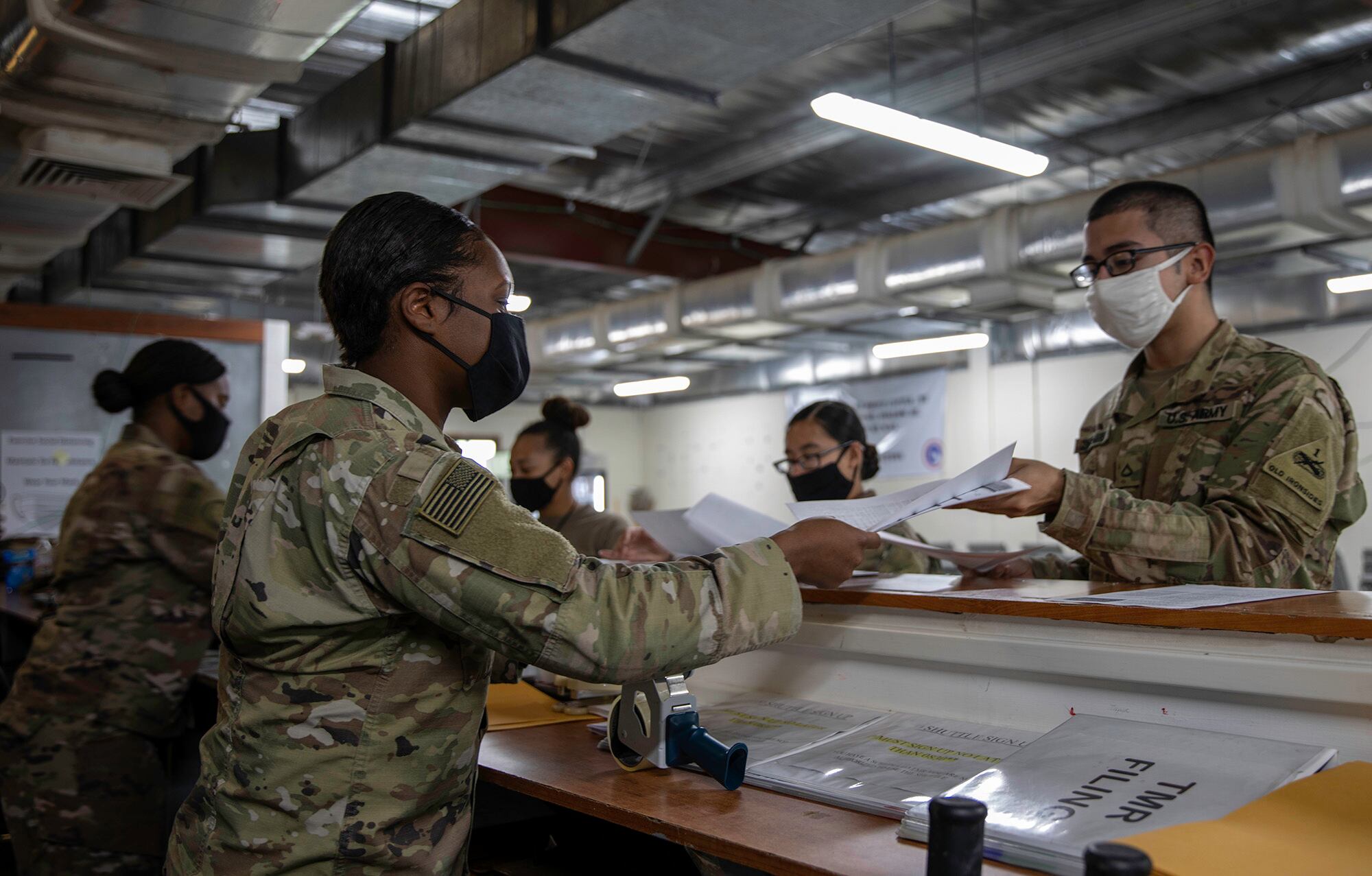It’s unlikely that military and overseas absentee ballots will be a factor in the results of the Georgia Senate runoff races, but they will still be counted through the end of the day Friday.
By Wednesday afternoon, media outlets had declared Democrat candidate Jon Ossoff the winner in that Senate runoff race, leading incumbent Republican Sen. David Perdue by more than 27,000 votes. Earlier, media outlets declared Democrat Raphael Warnock the winner in the other Georgia Senate runoff race, defeating Republican incumbent Kelly Loeffler. He was leading by more than 64,000 votes as of Wednesday afternoon.
Military and overseas absentee ballots are still being counted, and will be counted if they arrive to election officials by 5 p.m. Friday, Jan. 8, under Georgia law, if they are postmarked no later than Jan. 5. As of Wednesday morning, there were there are about 14,000 military and overseas absentee ballots still outstanding, but no one can predict how many of those will be returned, according to Gabriel Sterling, Georgia’s voting system implementation manager. Officials have said 17,000 military and overseas ballots were sent out. Traditionally, not all of these military and overseas absentee voters return their voted ballots, for various reasons.
Eyes across the country have been on the two Jan. 5 Senate runoff races in Georgia, which will determine which party controls the Senate. More than 4.4 million votes have been counted in the runoff races.
As of Wednesday morning, as the counting resumed in Georgia, there were about 60,000 mailed-in ballots yet to be counted, that had been received by election officials by the time the polls closed Tuesday evening, Sterling said. As the counting progressed during the day, the winning margins increased for the Democrat candidates. Those mailed-in ballots have different deadlines than the military and overseas absentee ballots, which can be received up through Friday.
Under the Uniformed and Overseas Citizens Absentee Voting Act, commonly known as UOCAVA, states must make certain provisions to make voting easier for voters who are U.S. citizens living overseas, and military voters who are absent from their voting district, whether in the U.S. or overseas. That includes offering voters the option of receiving their blank ballot electronically (states can choose to offer email, fax, or online portal); and accepting the FWAB as a backup ballot for all federal elections. States are required to send the blank ballots to UOCAVA voters at least 45 days before an election.
A number of states, including Georgia, allow extra transit time for voted ballots for these UOCAVA voters, as long as they are postmarked by election day, or in some cases, the day before.
Karen has covered military families, quality of life and consumer issues for Military Times for more than 30 years, and is co-author of a chapter on media coverage of military families in the book "A Battle Plan for Supporting Military Families." She previously worked for newspapers in Guam, Norfolk, Jacksonville, Fla., and Athens, Ga.





